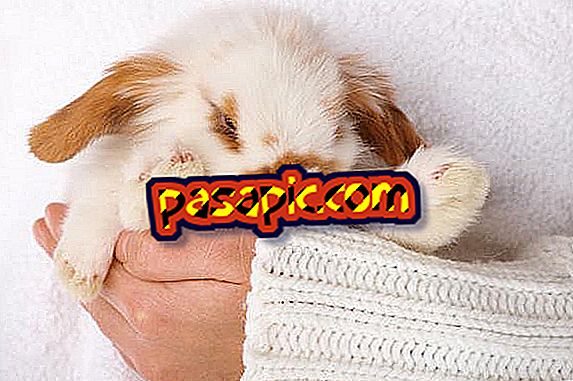What to do if my pet is intoxicated

Dogs and cats are the favorite pets in most homes thanks to their alert and playful nature, and their enormous capacity to be a great company for adults and children. But our animals require a lot of care to guarantee their health and safety . Beyond good nutrition and exercise, it is very important to keep pets away from plants and foods that can be toxic, and be prepared to react in the event of an accident. That's why in .com we explain what to do if your pet is intoxicated .
one
In our homes there are many plants and foods toxic to cats and dogs, which can trigger mild to severe reactions depending on the amount ingested, the type of toxic and the size of the animal.
two
It is essential that from a young age, the cat and the dog are trained not to bite or play with the plants and also not to eat foods that are found on the street or at home. In this way, we will prevent our pet from becoming intoxicated in the event of any oversight.
3
Depending on what the animal has ingested, the symptoms of poisoning can vary, however the most common are: diarrhea, vomiting, excessive salivation, breathing problems and hypertension. Not all food or toxic plants produce an immediate reaction, most manifest a few hours after consuming the substance, so many owners often think that it is a common disease and not an intoxication.
4
Given a similar picture, it is very important to determine if it is possible that the animal has consumed any plant, food or toxic substance that has been available. Many toxic foods simply produce digestive disorders that, once the substance is eliminated, do not have an important impact on your health.
However, in more severe cases we will notice how our animal looks apathetic and sick, at that moment the most important thing is to take it immediately to the veterinarian for a thorough review, especially if we suspect that he has ingested something.
5
It is essential that if we have plants in our garden, balcony or indoors, we know exactly their names, so if the animal is intoxicated we can quickly explain to the veterinarian which plants we have at home to assess the damage. In the same way if we leave any product or chemical within reach (cleaning products, poisons to eliminate insects, etc), we must write down your name and inform the doctor.
6
In most cases it is impossible to know what dose our pet has ingested, that is why it is so important to transfer it to a veterinarian when we suspect an intoxication or in cases in which digestive disorders, excessive salivation or respiratory problems and cardiac problems present themselves insistently . Our quick and timely reaction will be important to safeguard the life of our animal.
7
In the event of intoxication, the prognosis is usually favorable if the animal is treated on time, so do not hesitate to go with your pet to a veterinarian at the slightest suspicion of poisoning.


